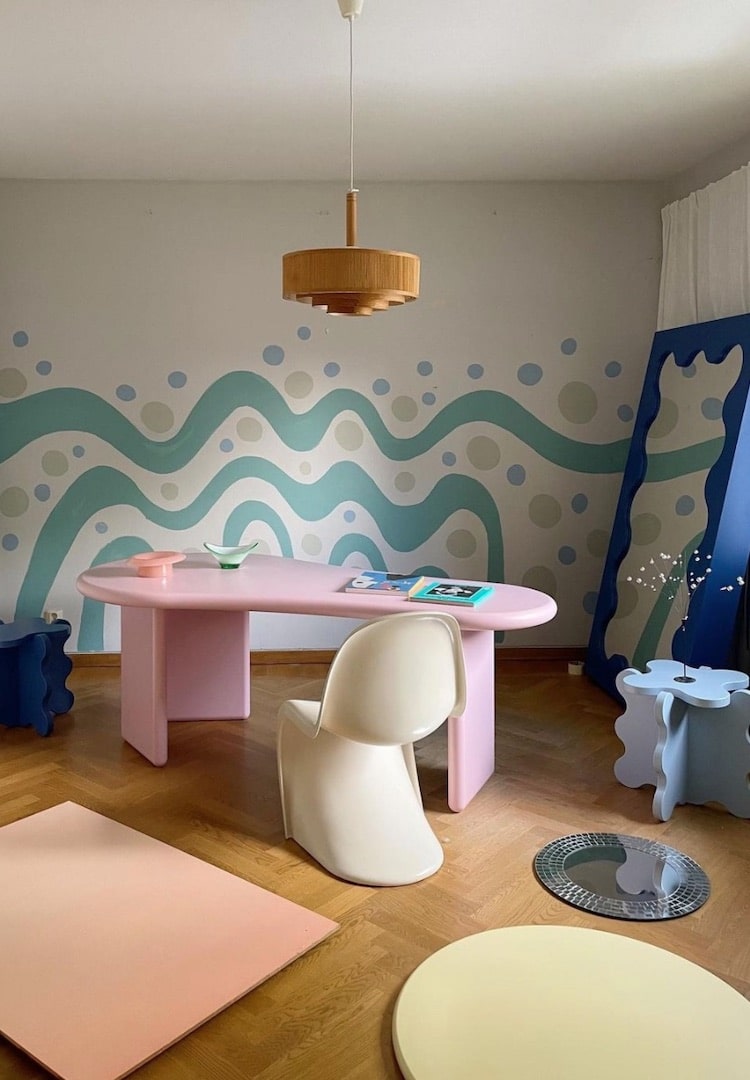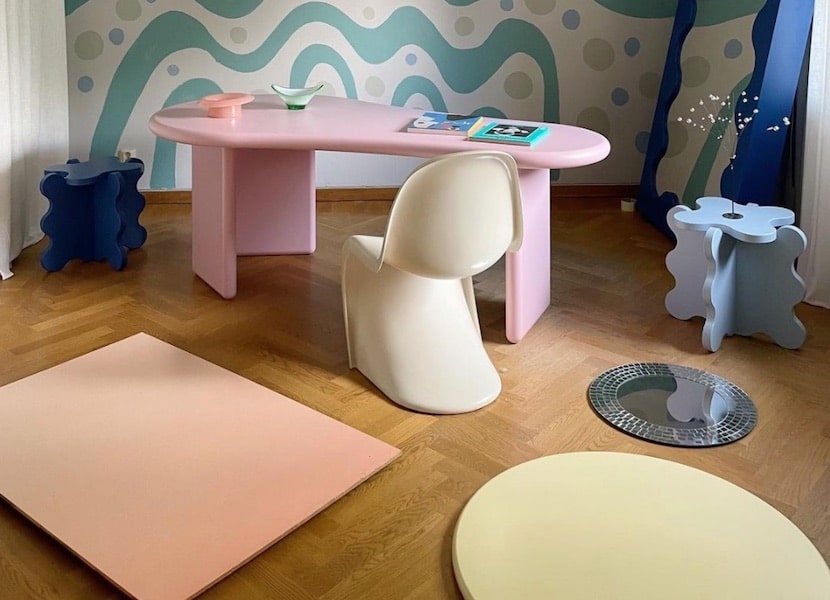A psychologist’s tips for collaborating with coworkers while working from home
IMAGE via @GUSTAFWESTMAN/instagram
WORDS BY JASMINE SHEPARD
Communication is key.
That five-minute tea break or quick mid-morning stroll to the local cafe between meetings with your coworkers can (literally) be a lifesaver. And I’m not only talking about the much needed triple-shot almond latte.
While these small interactions with coworkers can sometimes feel awkward or forced, they actually form the basis of strong team relationships and help everyone succeed professionally. So what happens when those shy waves across the corridor and team lunches of soggy sandwiches are no more?
Struggling with WFH? Head to our Life vertical for more career advice.
This is the reality for all of us working from home, and while some of us may be rejoicing, others are struggling. Without informal interactions, collaborative work can be challenging and isolating.
Quickly leaning across the desk to ask that question you really should know the answer to is undoubtedly easier in person, so how do we break down the barriers and nail coworking from home? Draga Jevtic, a psychologist and member of the Australian Psychology Society, answered my burning questions to help you combat your working from home blues and nail collaborative work.
Collaborative work can be difficult at the best of times with competing personalities and perspectives. What are three main tips to generally improve teamwork?
The three key areas are trust, tolerance and self-awareness. Trust comes from psychological safety [which] means that people won’t feel punished or humiliated when speaking up with their ideas, questions, concerns or mistakes. And that trust is the basis and foundation to any relationship. It empowers people to do their best work. It is developed over time, so I guess if we are removed from each other it may take a bit longer, but we can certainly implement both formal and informal activities to build that trust. Tolerance is about acceptance and appreciation of diversity. We are all unique, we all have our own style, values, rules and we bring all that with us to the table.
And the way we build tolerance is through exposure. So if we are working with diverse teams, that’s why diverse teams are much more successful, so having that exposure. We need to have our own self-awareness. We need to be aware of what motivates us, what emotions we are experiencing, what are our blind spots, what are our strengths, what are our vulnerabilities. Ask… and be open to feedback. They are the three key things that are really important to improve teamwork and to improve connectivity within teams. They take longer remotely, but they certainly can happen.
How can communication be improved while WFH, when any question goes through a formal channel of communication, like email?
It does require more planning and being more considered about our approach. It is about having those formal and informal channels which are scheduled. Don’t leave it to chat, they do need to be scheduled. You can have informal celebrations, you can have trivia nights, you can have walking meetings if you don’t require documents, as well as the formal channels [that] are really important. Things like having team huddles, book clubs, lunch and learns, exercise classes, trivia, all those sorts of things. Obviously, they are done virtually, but they can still be put in place. And they help build the team and build trust. And we do need to think about everybody.
Lots of the workforce is part-time these days, so it is important to change the days of when we have those events, whether they are formal or informal, also important to change the time of day, is it before work, at the end of the day, during lunchtime. Different schedules work for different people, so to capture as many people, especially the part-timers, it is really important to have them at different times of the day, as those informal, unexpected conversations actually energise us and unlock the creative part of our brain.
Especially in a remote working environment, mental health struggles can play a big role in dictating productivity and success at work. What is the importance of transparency and communication when coworking remotely?
Transparency is huge in building trust. It shows teams that you are not hiding anything… because they are being kept up to date with the reasoning behind why you are going where you are going at any point in time. That transparency in communication is ensured [through] regular one-on-one meetings with staff. Actually prioritising these formal and informal meetings is important.
With mental health, it is about noticing when something has changed. You don’t need to be a psychologist to notice when someone has changed. So it’s a change in someone [and] they have become more quiet. They have become more argumentative, their presentation has changed, whatever it is, it’s the change that is important. And it is about checking in, not checking up. Checking in, showing that you care, showing that empathy, showing the transparency, building the trust –they are interrelated and interconnected. And being sincere. People pick up sincerity, people are not silly.
Online forums present further barriers to collaborative work. How can coworkers build rapport, trust and working relationships over a virtual forum?
We need to be deliberate. It is not going to happen incidentally, so it does need to be planned and deliberate. We need to show that it is psychologically safe to speak up, and that helps build trust. Use both the formal and informal channels. Through diversity and education, having sessions, lunch and learns, modules and brainstorming sessions about various topics. Also, active listening is really important.
That is listening to understand, not listening to respond. So ask questions to better understand the person, summarise what they have said and make sure you’ve understood it properly. And if not, follow up with questions to get it right and to understand. But also, if you don’t have the time at that particular point in time, go back to that open[ness], honest[y] and transparen[cy].
Any overall advice for strengthening coworker relationships while WFH?
Communication and staying in contact is absolutely important. It is the foundation. Check-in on people, not check up on people. Show that you care, if you notice something has changed in someone check in with them. Let them know what you have noticed. Be mindful that there are lots of people that are very isolated… and remind your coworker to go and speak to their doctor to get a referral to a psychologist if they need it.
If you are struggling with WFH and are seeking professional help, get in touch with a psychologist here.













